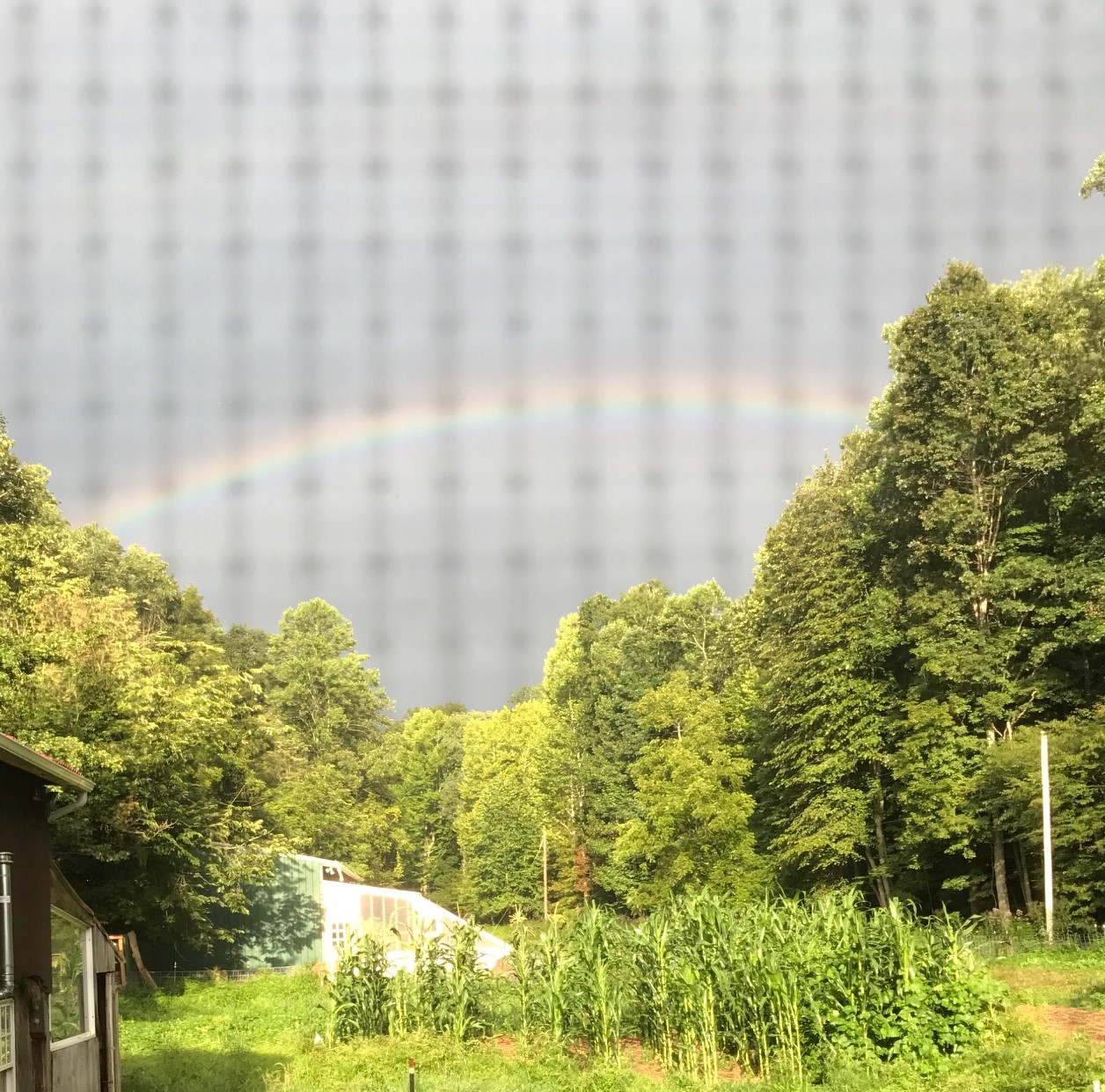
Toni
ModeratorForum Replies Created
-
Where are you looking and any particular breed, sex etc?
-
Just wonder how you “know” they are dying from Mareks? Are you having autopsy done or what? If so, how are they diagnosing this? Test used or what?
Reason I ask is we have never vaccinated for that and have only had one case that seemed to fit the description that was healed with homeopathy and minerals, leading us to believe what is being called a disease is actually a mineral deficiency.
ETA: We have maintained a flock of 50-100ish birds for about ten years now.
-
I know that many are scared by this and think it will make caring for critters harder for the little guys like us, but it honestly doesn’t need to. We have been raising critters here for over ten years and have not once ever needed to use a single synthetic antibiotic. Nature truly provides better, safer and more effective remedies than anything you can buy from Big Pharma.
-
Natural remedies I would never want to be without –
Calcium bentonite clay – my number one for so many things for humans and animals. You can read much more about it here – theclaybook.com
Fire Cider/Master Tonic – natural antibiotic, antiviral, anti fungal, all around useful ferment. There are many variations on the recipe but mine is equal amounts of 5 main ingredients – (onion, garlic, horseradish, ginger and cayenne or hotter peppers. I often add turmeric also, but not always.) then cover with raw apple cider vinegar for at least two weeks. Start at new moon, strain at full moon.
Magahol – Natural remedy for pain and quickly raising magnesium levels to stop muscle spasms within minutes or less. Google the recipe. Essentially add as much magnesium chloride flakes to vodka as will dissolve in it. Apply to skin as needed. Keep it away from sensitive mucous membranes, eyes etc.
-
I agree with the multi-pronged idea. We had terrible problem with flies also early on. Most important things we think helped long term were having free ranging chickens and guineas, and buying and encouraging fly predators. Never ever kill any bees on the property of any kind whatsoever. We have many wasps of all kinds and they all eat fly larvae – prevention is really effective… We also have and encourage and protect our hornets – we have them very close by every year. And we love them! They eat already hatched adult flies, right straight off the cows!! Nature’s fly swatter if you will. Invite bats to your barn or wherever your cattle are by lighting it at dusk to draw in other insects and they will also help reduce the fly populations. Manage your manure somehow. Special fly season mineral blends or the abc mineral program for the cattle will help also. Provide deep shade for the cattle somehow, either with wooded areas or dark barns, as examples. Short term- fly brushes can help, electric bug zappers, sticky tapes, sprays or pour ons (we don’t use any chemicals at all but others do so just throwing that out there). Plus the other great ideas others have already mentioned. Best wishes! Flies suck!!
-
Yeah, bees are great! Such busy girls…
Your local beekeepers association would be the best place to start imo. They can help you with information as well as finding bees that should work well in your particular area.
Of course, there are plenty of really good videos on youtube for getting the basic idea of what you might expect to need to learn and be able to do.
Have fun!! 🙂
-
Oh nice!! Is that guineas?
-
Thank you. Would heating it make it not viable as seed for next year? Or maybe if I put it in the dehydrator on the raw food setting (generally below 113F I believe)? Any idea on that?
-
It is so scary when that happens, isn’t it? What I have come to learn through the years is that while many common situations can be easily addressed, when it comes to Jerseys and calving, none of us knows as much as all of us! And we can do so much more together than any of us alone. Have you checked out the proboards forum too? It would be great if this community pulls together well enough to address serious issues like calving, etc also, but we’re not there yet, and in the meantime the other forum is as good a resource as I am aware of. My nic is bnb87 over there, just in case you join and I jump in to say hi 🙂
-
Very nice! I believe you will be glad you did. Your girls sure are beautiful!!
-
Not disagreeing just to disagree, but I would strongly caution against supplemental calcium after calving if not needed. Milk fever is a complex mineral imbalance and adding calcium if not needed can make a bad situation worse or a fine situation into an unnecessarily bad one. The simple act of taking the cow’s temp and watching her behavior can give you all the information you need to make a decision. I would suggest, if you have not done so already, to look on proboards.com for the Keeping a Family Cow forum and reading what is already posted there and/or joining and asking this very good question there. There are family cow owners from around the world who are committed members and many of whom are either professionals or vets who give their time and advice freely at all hours of the day or night. They also have a 911 thread that is constantly monitored to help anyone with an animal emergency. They helped me save the lives of several of my cows when I was new to it and many I consider my dearest of friends. Please consider this.
-
This reply was modified 2 years, 3 months ago by
 Toni.
Toni.
-
This reply was modified 2 years, 3 months ago by
-
Never done this yet but sounds like it might be workable if you had enough put by. I know people in Texas who, during severe drought, felled a tree a day to keep their cattle fed when there was just no grass, much less even hay to be found. I do want to mention though that you have to know what you are doing with johnson grass if you plan to feed it out – Put up wrong it can kill your animals. Maybe ask some experienced hay people to guide you along. Might want to put some calcium bentonite clay in your pantry in case any of what you come up with has any bad effects on your goats’ rumens. It can save their lives. Best wishes to you!
-
We are just getting ready to try this. We have meat birds in the brooder now but can’t use his steroid tractor cause we chose the wrong breed. But in the next week or so we are expecting delivery of 25 buff orpington pullets and 2 BO roos that we plan to use his idea with. These will be the first chickens we will be keeping confined to a specific area and our plan is to use the hens to lay fertile eggs we can incubate and hatch for meat birds next year, and to use their chicken tractor on steroids for those also. We planted cover crops over our finished garden area for them ahead of time so they should have plenty of greens. We also do have the comfrey already growing. What we do not have is the access to scraps from local businesses like he does to supply the approximately 5 pounds per day of grains he feeds out daily for carbs for 25 birds, so we are going to have to figure that out since they also will not have access to the wild seeds etc, that the free ranging birds do. We do have all the things I mentioned above and hoping that works in this system. We’ll let you know how it goes. Our current backyard flock is strictly free range and scraps in summer,
and free range and clabber, fodder, walnuts and mealworms, etc in winter. We have several and various
stands of different herbs, berries and other wild forage that they love too. And some wooded areas they love to scratch through for bugs and all sorts of other lil critters. -
Great advice! EBay has some come through fairly frequently also.
